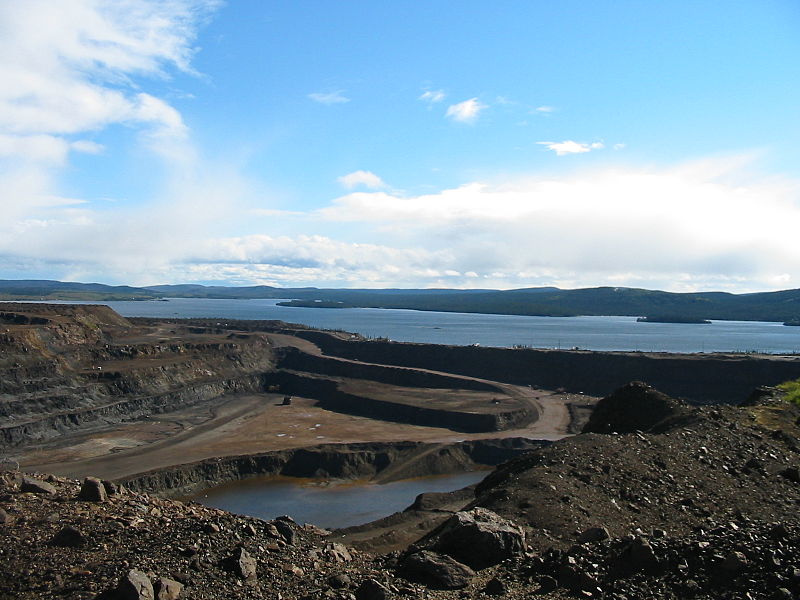
By Neil Carey [CC-BY-SA-2.0 (http://creativecommons.org/licenses/by-sa/2.0)], via Wikimedia Commons
Labrador Iron Mines, citing low metal prices, has announced the suspension of all operations at its mines for the year — operations which a year ago supported as many as 370 jobs.
The company said Wednesday that 2014 would be a development year as it concentrates on developing its Houston mine, near Schefferville in northern Quebec. The project is slated to begin production in April 2015, pending completion of $20 million of financing.
While the company says it has enough cash to continue operations over the next year, it continues to seek new investment.
Chairman and chief executive John Kearney said the company was able to reach its sales target for 2013, but that it was accomplished at the expense of product quality.
These ore quality problems in 2013, together with significant capital invested during that year, put considerable strain on LIMs cash resources and LIM now needs new external investment to enable the company to continue operations, to bring the bigger and long-life Houston project into production and to meet its corporate and administrative expenses, he said in a news release.
Labrador Iron operates several iron ore mines in the Schefferville region, north of Labrador City, N.L., as well as several projects under development. At peak production last year, it had 370 workers, including 240 contracted employees and about 130 company employees and corporate staff. A spokeswoman said those contracted miners have been redeployed to positions with other companies.
Company staffing was reduced to 60 in January and about half were laid off effective in February.
The price of iron ore has been pushed to its lowest levels since 2012, hurt by higher global supplies and a slowdown in steel output from China. The spot price of iron ore fell below US$90 per tonne in June, down from about US$131 during the 2013 operating season.
Labrador Iron isnt the only producer to make operational changes, partly in response to low ore prices.
Cliffs Natural Resources Inc. idled its Wabush Mine in Newfoundland and Labrador after determining it was not sustainable and economically viable, affecting 500 employees.
Labrador Iron said it was pursuing longer-term strategic initiatives to reduce costs, including reducing contract labour, alternative port arrangements and sharing facilities. It is also trying to renegotiate an existing offtake agreement with RBRG Trading Ltd. that would extend the mandated delivery schedule to 2015 and avoid a default.
Analyst Jackie Przybylowski of Desjardins Capital Markets said failure to renegotiate the terms of the offtake agreement could be catastrophic for the company.
She estimated the company needs $50 million in financing, including $30 million to start operations next spring plus $20 million to develop Houston, but foresees a low probability of raising the cash in the next few years.
Przybylowski lowered her one-year target price for the companys shares to two cents, from 10 cents previously.
The decrease is based on the expected salvage value of Labrador Irons assets given the high level of uncertainty around whether the company will ever start production.
The companys shares, which have plummeted from a peak of $14.30 in March 2011, closed down one cent , or 9.5 per cent, at 9.5 cents on Toronto Stock Exchange on Wednesday.
For the fourth quarter ended March 31, the company reported a net loss of $20.5 million, or 15 cents per share, compared with a net loss of $71.3 million, or 65 cents per share, in the same period a year earlier.
For the financial year ended March 31, the company reported a net loss of $105.2 million or 83 cents per share versus a net loss of $129.7 million or $1.56 per share a year ago.




